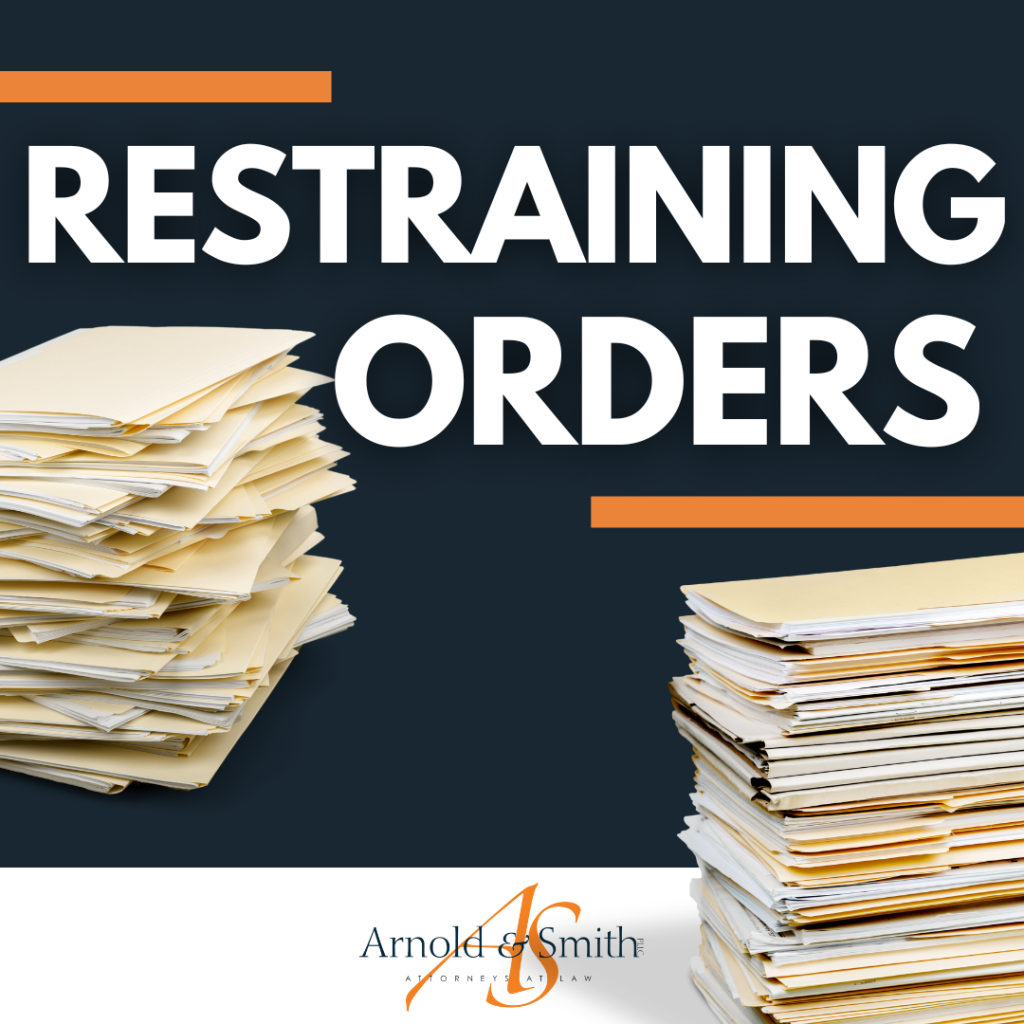A restraining order is a legal order that prohibits an individual from having contact with someone else. A restraining order may also be called a protective order or a no-contact order. A protective order may be temporary or permanent. Once in place, a violation of a protective order can result in criminal charges. It is helpful to understand restraining orders and learn how to defend yourself if you are facing a restraining order. A knowledgeable criminal defense attorney will assist you through the process.
In this video, Managing Member and Criminal Defense Attorney Brad Smith of Arnold & Smith, PLLC explains what an arraignment is in the criminal justice process. He will discuss what happens during an arraignment, the rights you have, and why this step is crucial in your defense. Gain essential knowledge from an experienced attorney to better understand the legal process.
Types of Restraining Orders
There are different types of restraining orders for different situations. There are three main types of restraining orders in North Carolina.
- Domestic Violence Restraining Order
A domestic violence restraining order is known as a 50B. It is an order meant to protect someone against a person who committed violence or threatened violence to a spouse, domestic partner, or other specified person. The 50B is not only for instances of physical harm but also when a person is in fear that rises to the level of emotional distress.
- Civil No Contact Order
A civil no contact order is also called a 50C. It is a protective order against someone who is not an immediate family member or domestic partner. Civil no contact orders are for stalking or non-sexual conduct. With an accusation of stalking, there must be more than one instance or occurrence in order to qualify for a no contact order.
- Workplace Violence No Contact Order
A workplace violence no contact order is meant specifically for employers. It is a more specific type of civil no contact order. The employer may file a request for an employee who is the victim of unlawful conduct in the workplace. Unlawful conduct may include physical injury, threats, or harassment. This is the least common type of restraining order.
- Legal Grounds to Get a Restraining Order

A person must have grounds to obtain a restraining order. The judge will review the details to determine whether or not to approve a restraining order. The grounds for obtaining the order depend on the type of order a person is seeking. The victim must provide information and proof of the need for a restraining order for a judge to grant it. A permanent restraining order is in place for a period of up to one year and is renewable.
- Emergency Restraining Orders
Typically, a restraining order must go through the court system in which a hearing is held. However, there are some circumstances where a person may feel that a threat is imminent. In these situations, a court may provide an emergency restraining order. The order will go into place immediately, but only temporarily. The court will hold a hearing, at which time the judge will review the details of the request. If the judge approves the order, it will become permanent. If the judge denies the order, the temporary order is no longer in effect.
- Defending Against a Restraining Order
There are some instances where a person may try to obtain a restraining order when one is not necessary. It is important to keep in mind that you have the right to defend yourself in the situation. You, along with your attorney, will be able to provide testimony or information in court to defend the allegations made against you. It is important to note that you must appear at the hearing for the restraining order. If you fail to appear, it is likely the restraining order will be granted for up to a year. If you have been charged with a crime, you will want to seek legal guidance to vigorously defend the charges.
A restraining order can have a substantial impact on your rights. Besides being required to stay away from a person, you could be restricted from visitation with your children, you face eviction, and you may need to surrender your firearms. In addition, you may be charged criminally. To get more information about your specific situation, call Arnold & Smith, PLLC, at (704) 370-2828 to talk to our skilled legal team.
The criminal defense attorneys at Arnold & Smith, PLLC make it their mission to zealously defend their clients on a wide range of criminal matters at both the state and federal levels. These matters may include any charge from traffic offenses; DWI/DUI; drug charges (from simple possession to possession with intent to distribute and trafficking); gun permit denials; weapons offenses; and property crimes (larceny, breaking and entering, robbery, fraud, embezzlement, white collar offenses); to sexually related offenses (indecent exposure; sexual assault, crimes against nature, removal from sex offender registry); and violent crimes (domestic violence; assault; manslaughter; homicide, murder). Other legal issues that Arnold & Smith, PLLC criminal clients may be facing include restraining orders, restraining order and probation violations, expungements; appeals; and immigration issues related to criminal charges. Our criminal defense attorneys are passionate about ensuring that individuals empower themselves by being informed about their constitutional rights and stand at the ready to fight in the defense of those facing criminal charges.
Source:
https://www.ncleg.net/enactedlegislation/statutes/html/bychapter/chapter_50c.html
https://www.ncleg.gov/EnactedLegislation/Statutes/HTML/ByChapter/Chapter_50b.html
Image Credit:
https://www.freeimages.com/photo/documents-1427202
See Our Related Video from our YouTube channel:
https://www.youtube.com/user/ArnoldSmithPLLC/videos
See Our Related Blog Posts:
 Charlotte Criminal Lawyer Blog
Charlotte Criminal Lawyer Blog



